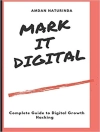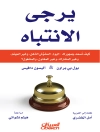Our seduction into beliefs in competition, scarcity, and acquisition are producing too many casualties. We need to depart a kingdom that creates isolation, polarized debate, an exhausted planet, and violence that comes with the will to empire. The abbreviation of this empire is called a consumer culture.
We think the free market ideology that surrounds us is true and inevitable and represents progress. We are called to better adapt, be more agile, more lean, more schooled, more, more, more. Give it up. There is no such thing as customer satisfaction.
We need a new narrative, a shift in our thinking and speaking. An Other Kingdom takes us out of a culture of addictive consumption into a place where life is ours to create together. This satisfying way depends upon a neighborly covenant–an agreement that we together, will better raise our children, be healthy, be connected, be safe, and provide a livelihood. The neighborly covenant has a different language than market-hype. It speaks instead in a sacred tongue.
Authors Peter Block, Walter Brueggemann, and John Mc Knight invite you on a journey of departure from our consumer market culture, with its constellations of empire and control. Discover an alternative set of beliefs that have the capacity to evoke a culture where poverty, violence, and shrinking well-being are not inevitable–a culture in which the social order produces enough for all. They ask you to consider this other kingdom. To participate in this modern exodus towards a modern community. To awaken its beginnings are all around us. An Other Kingdom outlines this journey to construct a future outside the systems world of solutions.
สารบัญ
Signs of the Times xiii
Introduction: C ontext Is Decisive xvii
The Landscape of the Market World xx
Enclosure xxi
Covenantal Versus Contractual Order xxi
The Neighborly Covenant xxii
Chapter 1 The Free Market Consumer Ideology 1
Scarcity 2
Certainty and Perfection 3
Privatization 3
The Institutional Assumptions 4
Better Management/Technology Is the Fix 4
Interpersonal Is a Problem 5
Competition Trumps Trust 5
Toward a Neighborly Culture 6
A Culture Based on Covenant 6
Chapter 2 Neighborly Beliefs 9
Abundance 9
Mystery 10
Mystery at Work 11
A Place for God 13
Holiness 15
Wilderness 15
Fallibility 16
Failing to Be God 18
Grief 19
The Common Good 20
Chapter 3 Enough Is Enough: Limits of the Market Ideology 21
The Consumer Market Disciplines 22
Surplus 22
Predictability and Control 24
Speed and Convenience 26
The Sale of Convenience 26
Convenience Displaces Capacity 27
Digital Solutions 28
The Meaning of Money 29
Money and the Machine 30
Wishing for Safety, Believing in Growth 31
Competition and Class 32
Class by Design 33
Class Warfare and the Distribution of Wealth 34
The Myth of Individualism 36
Chapter 4 Tentacles of Empire 37
The Corporatization of Schools 38
No View from the Top 38
End of Aliveness 39
Mobility and Isolation 40
Un-Productive Wealth 41
Violence 42
Illusion of Reform 43
Chapter 5 The Common Good Is the New Frontier 45
The Neighborly Covenant 46
The Commons 48
An Alternative Social Order 49
Resisting the Empire 50
Off-Market Possibilities 51
The Neighborly Way 53
The Alternative to Restless Productivity 55
The Shadow Side of Community 58
Chapter 6 The Disciplines of Neighborliness 61
Time 63
A Time for All Things 63
Time Is the Devil 63
Standing in Line 65
Kairos 65
Food 66
Food and Sacred Re-Performance 67
The Local Food Movement 69
Food and Culture 69
Silence 71
Listening 72
Quakers and Time and Listening 72
Sacraments of Silence 73
Covenant: A Vow of Freedom and Faithfulness 74
Covenant and Retributive Justice 75
Abundance and the Right Use of Money 75
Money and Our Affection for Place 77
A Liturgy for the Common Good 77
Prophetic Possibilities 78
Story as Liturgy and Re-Performance 79
The Re-Performing Power of Liturgy 79
Postscript: Beyond Money and Consumption 81
Timing Is Everything 82
Signs of Change 83
Commentaries 85
References and Further Reading 97
Acknowledgments 103
About the Authors 105
Index 111
เกี่ยวกับผู้แต่ง
Peter Block (Cincinnati, OH; www.peterblock.com; www.designedlearning.com) is a leading consultant and bestselling author whose work is about empowerment, stewardship, chosen accountability, and the reconciliation of community. He is a partner in Designed Learning, a training company that offers workshops designed by Peter to build the skills outlined in his books. He received a Masters Degree in Industrial Administration from Yale in 1963. He has received national awards for outstanding contributions in the field of training and development, including the American Society for Training and Development Award for Distinguished Contributions; the Association for Quality and Participation President’s Award; and Training Magazine HRD Hall of Fame.
Walter Brueggemann (Cincinnati, OH; www.walterbrueggemann.com) is one of the most influential Old Testament scholars of the last several decades, known throughout the world for his method of combining literary and sociological modes when reading The Bible. He has written more than 58 books, hundreds of articles, and several commentaries on books of the Bible, has contributed to the Living the Questions DVD series, and participated in Bill Moyers’ PBS television series on Genesis.
John Mc Knight (Evanston, IL) is emeritus professor of education and social policy and co-director of the Asset-Based Community Development Institute at Northwestern University. He is the coauthor of Building Communities from the Inside Out and the author of The Careless Society.












